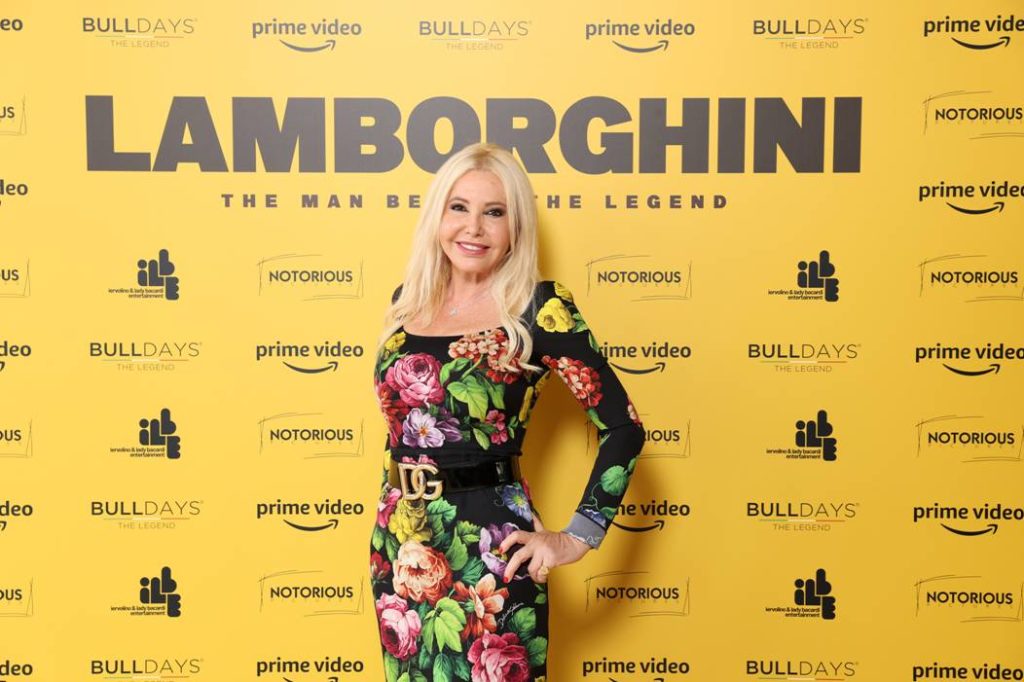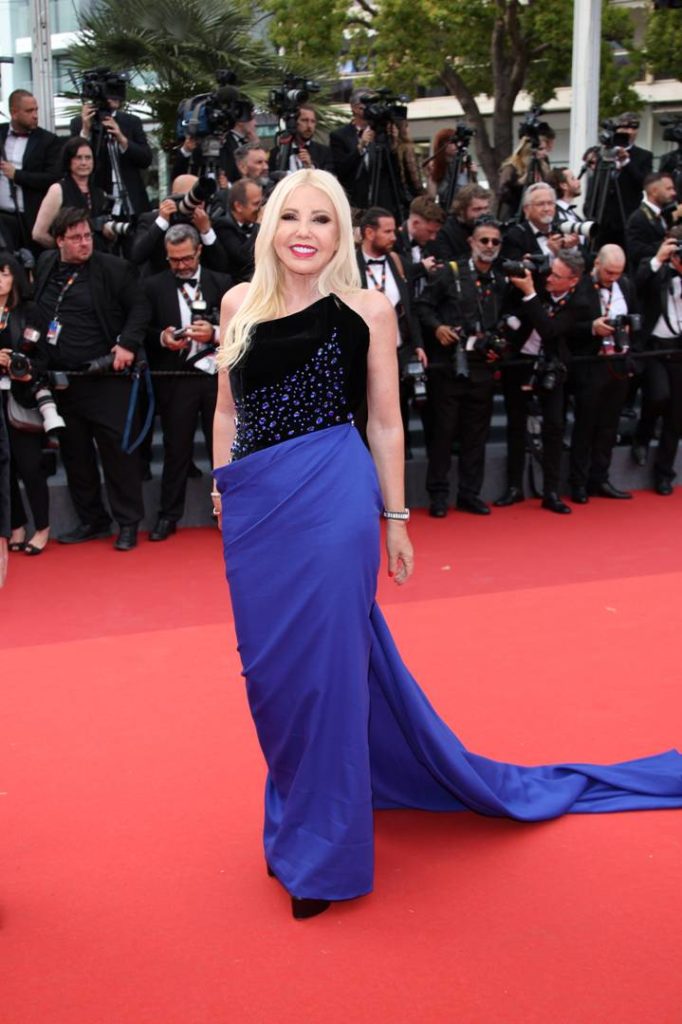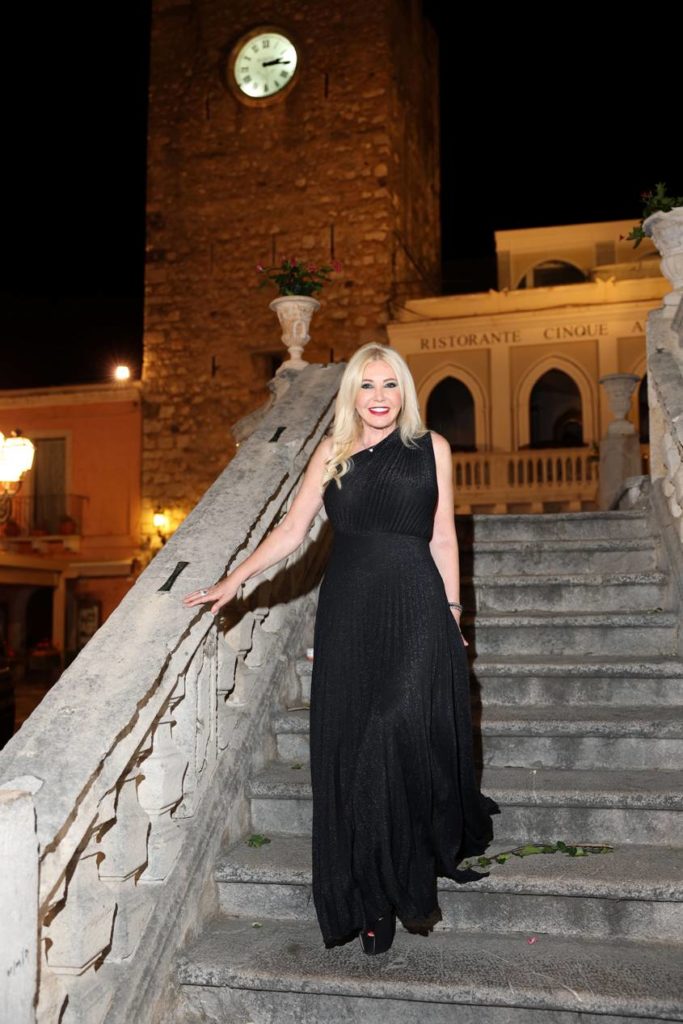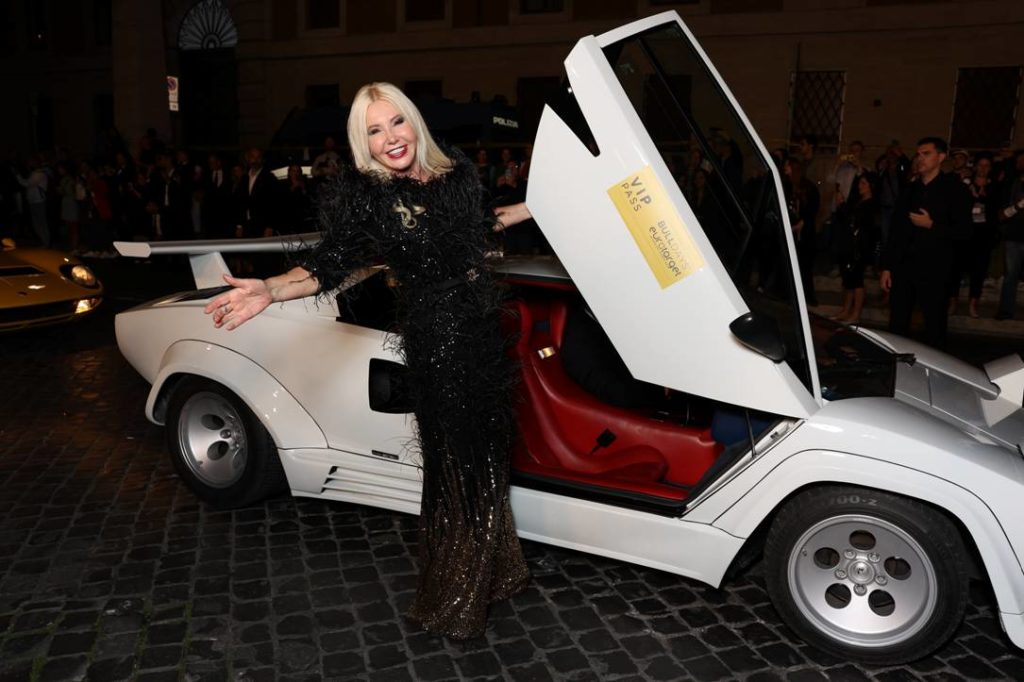Monika Bacardi is an internationally renowned businesswoman and philanthropist. Lady Monika Bacardi is the co-founder of Iervolino and Lady Bacardi Entertainment (ILBE), IE Studios by ILBE in Serbia, and the AMBI Media Group in the USA.
Monika is also an avid supporter of charitable organizations and philanthropic initiatives around the world. Thank you, Monika, for taking the time to do this interview with us.
How did your career start and what experiences did you have along the way to success?
I took my first steps into the world of cinema driven by a strong passion for all that is artistic. I love creativity in all its forms and over the years I have given impetus and took care of numerous international projects ranging from photography to philanthropic initiatives up to the film world. My meeting with Andrea Iervolino was fundamental, and allowed us to create a reality, ILBE, which promotes made-in-Italy cinema in the world. Together, we try to relaunch the Italian audiovisual sector.

Can you tell us more about ILBE Group and how it came to be?
Iervolino & Lady Bacardi Entertainment, was born with the intention of bringing Italy to the world and the world to Italy. For this, it adopts the business model of American independent producers, which focuses on the on the core production phases, IP ownership on a rich and valuable content library. In parallel ILBE Group provides services such as executive production, celebrity management and merchandising. A choice dictated by two objectives – to strengthen the value chain and diversify the business – made possible by a choral work of all the Group players aimed at an integrated synergic offer in the entertainment industry. It is no coincidence that ILBE Group has diversified its skills by acquiring the animation studio ILBE Studios Serbia, Arte Video and WePost for post production, and Red Carpet and SoBe Sport for celebrity management. 120 employees and several collaborators form a Group with great expertise in the film and visual arts sectors. Our works are 100% Italian and are distributed worldwide collaborating with Universal Pictures, HBO, Amazon Prime Video, Disney, iTunes, Netflix.
How do you choose the projects that you produce, and what type of movies do you personally prefer?
As a producer, I have a soft spot for great stories, those that manage to enthral and inspire. I absolutely love socially committed cinema, which is able to convey positive and important messages for society as a whole with works that can become food for thought, deepening, support and political, economic and social inspiration. Cinema can be an incredible vehicle for change if used in the right way, and that is exactly what we want to do in ILBE.

How important is it for you that your projects have a social or moral value?
As I said, it is crucial. In my opinion, those who are lucky enough to do this job have the great opportunity to decide what millions of people will see on the big screen and beyond. From this, for me, comes a great responsibility, that of conveying messages that can bring about positive change in society. The films of which I am co-producer are not only the result of a passion or an entrepreneurial vocation, but also of my universe of values that translates into social commitment.
What do you consider to be the biggest challenges in the film industry and how do you deal with them?
I strive to change the image that is of women in cinema, one of the biggest challenges for me, and the one that is closest to my heart. Films like ‘Tell It Like A Woman’, which tells the story of seven different protagonists, all female, want to promote this message of inclusion and equality in the world. The episodes of Tell It Like A Woman are directed by female directors from different parts of the world and are shot in Italy, India, USA and Japan. The performers, all women, are internationally renowned actresses, including David di Donatello winner Margherita Buy, Oscar winner Marcia Gay Harden, Golden Globe nominee Eva Longoria, Cara Delevingne, Leonor Varela and Jacqueline Fernandez, but also Anne Watanabe.
In light of this commitment, I am glad to join the Honorary Advisory Board of We Do It Together, a nonprofit film production company that pursues this very purpose.

How do you see the future of the film industry and what developments do you expect?
Even though feature films, in my opinion, will remain one of the focal points of the film industry, it is possible to observe how the new generations are accustomed to entertainment content with a shorter and shorter duration. I think that for the future the industry must question itself about these new trends, anticipating them, as we have already done in ILBE with the Puffins’ short contents. We are producing animated short content for children because we believe that cartoons like Artic Friends or Puffins can give positive messages and inspire values. Productions aimed at the younger generation, such as the Puffins animated series, including the most recent production in progress Baby Puffins and Bunny, in which positive messages are conveyed, can help build a better world, in which inequalities no longer dominate.
How has the COVID-19 pandemic affected the film industry and how have you and your company responded to it?
The pandemic has certainly put the entire industry under a lot of strain, not only in terms of costs and revenues, but also with regard to the entire set and production logistics. We, as ILBE, have been able to respond well to these difficulties, thanks to the right mix of solidity and business flexibility. Nowadays, it is essential for companies in the sector to have a flexible corporate structure in order to be able to respond adequately to every possible scenario.
How important is it for you to connect art and charity?
Philanthropy has always been one of the great drivers of art. For me, it is wonderful to think that I can contribute, even in a small way, to something that will reach millions of people around the world and perhaps go down in history. For me, cinema is the purest of all art forms: a gift, capable of conveying positive messages and emotions to people.
You are also known as a philanthropist. What are the key charitable organizations that you support and why are they important to you?
I support, in an active way, numerous organizations and third sector realities. I am currently active with Fondation Princesse Charlène de Monaco, Monaco Aide et Présence (MAP), Venetian Heritage Foundation. I am a member of the Development Committee of the Prince Albert II of Monaco Foundation and of the Assembly of Les Amis du Musée Océanographique de Monaco. I also support Mission enfance Monaco, Association pour la vie espoir contre le cancer du Professeur David Khayat, Action innocence Monaco, Association Monégasque Les enfants de Frankie, AMFAR AIDS research foundation, Aide au Père Pedro Opeka, Vaincre le cancer. They are all equally important to me, because they all respond to my desire to try to change the world, in a small way.

How can people who do not have your resources contribute to making the world a better place?
I believe in the power of positive actions, and their strong emulative power. It doesn’t necessarily take huge amounts of capital to change the world: all of us, by our example, can help to do our part, and to be bearers of real change.
How important is promoting education and culture to you, and how do you contribute to it?
Education and culture are the real key to bringing people together and creating dialogue. With ILBE’s productions we want to tell universal messages and values, conveyed through stories with a strong ethical and social value.
What are your thoughts on the climate crisis and how can we as a society and as individuals help to address it?
The climate crisis is one of the most important challenges facing humanity. Climate change will indeed impose profound restructuring in our society, with famine, migration, rising water levels and many other indirect consequences. As individuals, we can do our part by stimulating politicians, through positive advocacy, to take the problem seriously and find possible solutions soon. On safeguarding the planet we must help raise awareness of what is a serious problem for all of us and for future generations.

How important is animal protection to you, and how do you advocate for it?
Nature for me is a primary source of inspiration and beauty. In my daily life, I strive to always respect it, putting animal protection in the foreground. The beauty of nature is an inspiration for me, why not, also in choosing the next film projects I intend to develop.
What personal values and beliefs have helped you in your career and life?
Resilience, courage, creativity and love: these are the values, attributes and characteristics that guide my actions and represent me the most. I believe in the power of creativity and love; I live every day with courage, in the ultimate desire to promote culture through the noble art of cinema.
How do you motivate yourself when faced with challenges or setbacks?
Challenges and setbacks are part of our lives. They exist because they balance successes and joys: they are part of a greater balance, which surrounds and envelopes us. I live each challenge with a smile, thinking about the beautiful journey of life: confident that I will always become stronger in facing and handling each difficulty.
What are your future plans and projects that we can look forward to?
I want to continue to contribute to the recognition of the quality of Italian film productions in the world, through the creation of works that stimulate public awareness of the great social issues of our time, offering them new, positive interpretations and solutions that are of help to the new generations for the construction of a better world. I cannot anticipate everything, there will be time and a way to talk about it together. I can tell you that in my future there will be lots of cinema, lots of art, lots of music and beauty. I want to continue in my philanthropic commitment and in my role as an entrepreneur, always trying to tell and enhance the beauty that exists in the world.
How important is it for you to be a role model for other women in the business world?
When I approached the world of cinema, the theme of the gender gap had not yet acquired the relevance it has today and the path I took to establish myself as a producer gave me awareness of the difficulties that women encounter in a sector that is still very masculine. Hence my desire to change things. I believe in women empowerment, and I think women need to be better at being a team, together. I hope that my example can be useful to other courageous women: stories that, with ILBE, we promoted and told in the film Tell It Like a Woman, which with the song Applause was nominated for an Oscar, and which was screened at the UN Assembly, among others. My involvement in We Do It Together also symbolises just that, the commitment to gender equality.
What do you consider to be the biggest strengths and weaknesses of women in the business world, and how can we empower and support women?
Women in business are strong, special and unique: they are born leaders and, thanks to their innate ability and multitasking, they are an example to all. They know how to simplify complex problems, leading businesses to success. They use kind, humane leadership that makes people feel good. In the past, a feminism without real goals has been imposed. I don’t think there is a need for a competition between men and women, but rather for mutual listening and collaboration that develops synergies and complementarities, and allows cinema to convey more complete and complete messages. What we cannot compromise on is the real need for equal opportunities, but then success or the achievement of results does not necessarily have to be equal.
How important is it for you to preserve and celebrate your cultural roots in your life and work?
Our cultural roots are the salt that enriches the earth. They are what sets us apart: they bring us together in a natural and ancestral communion of purpose, and they call to mind our way of life. In my life, as well as in my work, cultural roots allow me to see things from a privileged, unique and differentiated point of view and enrich my emotional and cultural baggage.
What advice do you have for young people who aspire to have a career in the film industry or in philanthropy?
I advise them to always follow their dreams, without letting themselves be tempted by the paths that may be easier. Live a pure life, following your passions and natural inclinations, and you will be rewarded in beauty, joy and serenity.
Thank you for taking the time to speak with us, Monika. Your career and dedication to philanthropy are inspiring and demonstrate how business leaders have the power to make a difference in the world. Your work in the film industry has shown us the importance of connecting art with social impact. We are confident that you will continue to play an important role in promoting education, culture, and charity, and that your future projects and plans will be just as innovative and successful as before.
Thank you once again for your time and insights.
Photocredit by Daniele Venturelli
Interviewd by Michael Reckendorfer
